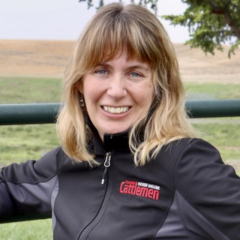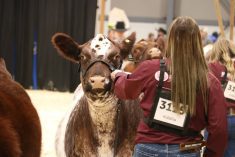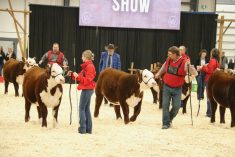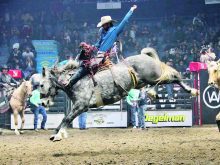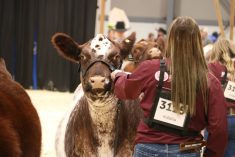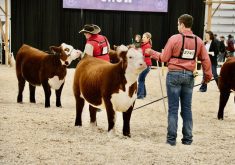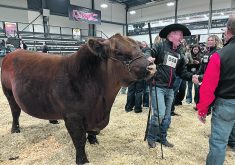Riverside Market Garden, operated by Flying Dust First Nation, started in 2009, with two people and an old alfalfa field.
Today it employs about 20 people, plus summer students, provides food for the community and wholesalers, and gives youth a chance to learn about agriculture.
Other Agribition coverage:
- VIDEO: Simmental, Hereford top show
- Strong sales highlight 52nd Agribition, helped by weather
- Stock dogs show off their skills at Agribition
- Agribition Tech winners crowned
- Iowa school group gets a glimpse of Agribition
- Mexicans invest in Canadian Speckle Park
- Simmental clear winner at First Lady Classic
- Lonesome Dove Ranch finds success at Agribition
- Sask. judge takes top spot at youth competition
Read Also

New program aims to support plant-based exports to Asia
Understanding the preferences of consumers in Taiwan and how they differ from Indonesia or Malaysia isn’t easy for a small company in Saskatchewan.
Over the years, the Meadow Lake, Sask.-area First Nation has been converting the alfalfa field into a potato field and expanding the vegetable garden. This year, they planted 18 tonnes of seed potatoes and harvested about 90. They expected to harvest about 120 tonnes, but they didn’t beat the frost, says Jason Cardinal.
Cardinal has a background in data science and mechanics and he brings that high-tech lens to Flying Dust’s agricultural ventures.
Speaking at the 10th annual Indigenous Ag Summit, held during Canadian Western Agribition in Regina, Cardinal explained how they survey the land base with drones, using the images and maps for land-use planning, elevation mapping, tree canopy counts, calculating flood risk and checking crops and bison.
That tech also attracts students and young people to the market garden.
“We do a lot of drones and that seems to really entice them because the technology is something they’re really interested in. It enables them to make videos, TicToc videos and things like that. Get cool footage. We’ve got a lot of bison running and things like that.”
Summer students are put to work doing everything from building a chicken coop to growing and selling produce. A community elder mentors the students, teaching them how to manage the greenhouse, as well as about traditional foods and medicines. This year, they also planted about 200 fruit trees, creating a “food forest.” Students can also earn their green certification at the market garden over two years through the University of Saskatchewan.
The market garden produces a range of vegetables, including three types of potatoes, cabbage, carrots, peas, lettuce, squash, peppers and tomatoes. Currently, vegetables are grown on five acres, but there are 20-25 acres available for vegetables. Along with chickens and bison, the First Nation also has more than 150 beehives, which is a relatively new venture. Workers have been taking courses on bees and learning from a beekeeper hired by the reserve.
The market garden has a temperature-controlled potato storage facility and commercial kitchen, information on Flying Dust’s website states.
Supervisors run the market garden, which also has a board of directors.
Cardinal says their biggest challenge is distributing the produce because they are short of transportation-related infrastructure. However, Flying Dust plans to buy a new truck and that should ease some distribution pains.
The Riverside Market Garden aims to provide fresh produce to the community, as well as other communities within a 100-mile radius, says Cardinal. They’re also building a community meat shop to process meat from bison and cattle.
The market garden sells into the Co-op and the Meadow Lake Farmer’s Market. It also has sales agreements with Sobey’s and Thomas Fresh, which sells to Costco and Walmart.
Cardinal says they’re looking for more customers because the market garden is producing more than the people in the community consume.
This year, they did a lot of food preservation, such as freeze-drying and canning and involved students.
“We did pickles and peppers and beets and stuff like that. So it was a really nice experience, getting to see that firsthand.”
Agribition was held Nov. 20-25.



